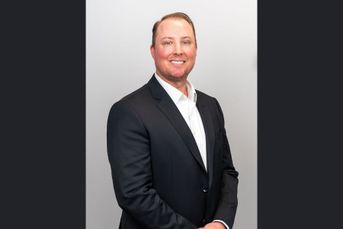Two-thirds of Americans want an alternative path to retirement

New report from Fidelity uncovers changing attitudes about retirement, concerns around savings, and use of technology across generations.
In the years since Covid-19 first rocked the world, American perspectives on retirement have shifted, with a significant number of people now seeking to blend their personal passions with their professional lives.
That’s among the top-line findings of the latest State of Retirement Planning report from Fidelity Investments, which draws from a survey of 2,014 adult financial decision-makers across the US.
According to Fidelity’s study, two-thirds of Americans (66 percent) are now more inclined to live intentionally by pursuing their passions and dreams in their retirement years, with 73 percent of millennials leading the trend.
Remote work advances have spurred more half of younger-generation respondents – including 60 percent of Gen Zers and 58 percent of millennials – to consider abandoning traditional retirement paths in favor of traveling, relocating, or even opening a new business in their second act.
The concept of a phased retirement, including a shift from full-time to part-time work before retiring completely, is appealing to two-thirds of respondents across generations.
“As more people rethink retirement, with new goals such as living abroad or starting a business, it’s important to consider the potential impacts to their Social Security, Medicare and taxes,” said Rita Assaf, Fidelity Investments’ vice president of retirement products.
Despite the unpredictable economic climate, the survey found three-quarters of respondents are confident they’ll retire when and how they want. Still, concerns about achieving retirement savings goals persist, with over half of younger generations (56 percent of Gen Zers and 57 percent of millennials) worrying about how higher living costs may affect their ability to save for retirement.
Apart from inflation, consumer debt and building emergency funds came up as the top barriers to retirement saving. For younger respondents, student debt, dreams of homeownership, saving for a wedding, and childcare costs were also seen as obstacles.
Generally, respondents had a positive view on the introduction of SECURE 2.0 legislation, with a third of Gen Z respondents optimistic that employer contributions toward retirement savings, coupled with student loan payments, will enhance their saving capacity.
Technology has also been a boon for retirement savers, with 10 percent of respondents – driven by 20 percent of millennials – using robo-advisors to manage their investments. However, the preference for human financial advice remains strong across age groups, with more than three-quarters saying they’d rather work with a human advisor to build a plan supporting their goals.
As retirement planning evolves, so do the aspirations for an active and fulfilling retirement. An 85 percent majority of respondents said they want to retire while they’re still healthy and able, with a target retirement age of 61 to 62 on average. While a four-fifths majority of respondents with a retirement income plan were at least somewhat confident it would meet their goals, nearly half still worried about facing a financial shortfall in retirement or outliving their savings.
Overloading on stocks in retirement often makes sense, says Horizon CIO
Learn more about reprints and licensing for this article.







